第144章 BOOK XXIII(4)
Fourth in order Antilochus, son to noble Nestor son of Neleus, made ready his horses. These were bred in Pylos, and his father came up to him to give him good advice of which, however, he stood in but little need. "Antilochus," said Nestor, "you are young, but Jove and Neptune have loved you well, and have made you an excellent horseman. I need not therefore say much by way of instruction. You are skilful at wheeling your horses round the post, but the horses themselves are very slow, and it is this that will, I fear, mar your chances. The other drivers know less than you do, but their horses are fleeter; therefore, my dear son, see if you cannot hit upon some artifice whereby you may insure that the prize shall not slip through your fingers. The woodman does more by skill than by brute force; by skill the pilot guides his storm-tossed barque over the sea, and so by skill one driver can beat another. If a man go wide in rounding this way and that, whereas a man who knows what he is doing may have worse horses, but he will keep them well in hand when he sees the doubling-post; he knows the precise moment at which to pull the rein, and keeps his eye well on the man in front of him. I will give you this certain token which cannot escape your notice. There is a stump of a dead tree-oak or pine as it may be- some six feet above the ground, and not yet rotted away by rain; it stands at the fork of the road; it has two white stones set one on each side, and there is a clear course all round it. It may have been a monument to some one long since dead, or it may have been used as a doubling-post in days gone by; now, however, it has been fixed on by Achilles as the mark round which the chariots shall turn; hug it as close as you can, but as you stand in your chariot lean over a little to the left; urge on your right-hand horse with voice and lash, and give him a loose rein, but let the left-hand horse keep so close in, that the nave of your wheel shall almost graze the post; but mind the stone, or you will wound your horses and break your chariot in pieces, which would be sport for others but confusion for yourself. Therefore, my dear son, mind well what you are about, for if you can be first to round the post there is no chance of any one giving you the goby later, not even though you had Adrestus's horse Arion behind you horse which is of divine race- or those of Laomedon, which are the noblest in this country."When Nestor had made an end of counselling his son he sat down in his place, and fifth in order Meriones got ready his horses. They then all mounted their chariots and cast lots.- Achilles shook the helmet, and the lot of Antilochus son of Nestor fell out first; next came that of King Eumelus, and after his, those of Menelaus son of Atreus and of Meriones. The last place fell to the lot of Diomed son of Tydeus, who was the best man of them all. They took their places in line; Achilles showed them the doubling-post round which they were to turn, some way off upon the plain; here he stationed his father's follower Phoenix as umpire, to note the running, and report truly.
At the same instant they all of them lashed their horses, struck them with the reins, and shouted at them with all their might. They flew full speed over the plain away from the ships, the dust rose from under them as it were a cloud or whirlwind, and their manes were all flying in the wind. At one moment the chariots seemed to touch the ground, and then again they bounded into the air; the drivers stood erect, and their hearts beat fast and furious in their lust of victory. Each kept calling on his horses, and the horses scoured the plain amid the clouds of dust that they raised.
It was when they were doing the last part of the course on their way back towards the sea that their pace was strained to the utmost and it was seen what each could do. The horses of the descendant of Pheres now took the lead, and close behind them came the Trojan stallions of Diomed. They seemed as if about to mount Eumelus's chariot, and he could feel their warm breath on his back and on his broad shoulders, for their heads were close to him as they flew over the course. Diomed would have now passed him, or there would have been a dead heat, but Phoebus Apollo to spite him made him drop his whip.
Tears of anger fell from his eyes as he saw the mares going on faster than ever, while his own horses lost ground through his having no whip. Minerva saw the trick which Apollo had played the son of Tydeus, so she brought him his whip and put spirit into his horses; moreover she went after the son of Admetus in a rage and broke his yoke for him; the mares went one to one side the course, and the other to the other, and the pole was broken against the ground.
Eumelus was thrown from his chariot close to the wheel; his elbows, mouth, and nostrils were all torn, and his forehead was bruised above his eyebrows; his eyes filled with tears and he could find no utterance. But the son of Tydeus turned his horses aside and shot far ahead, for Minerva put fresh strength into them and covered Diomed himself with glory.